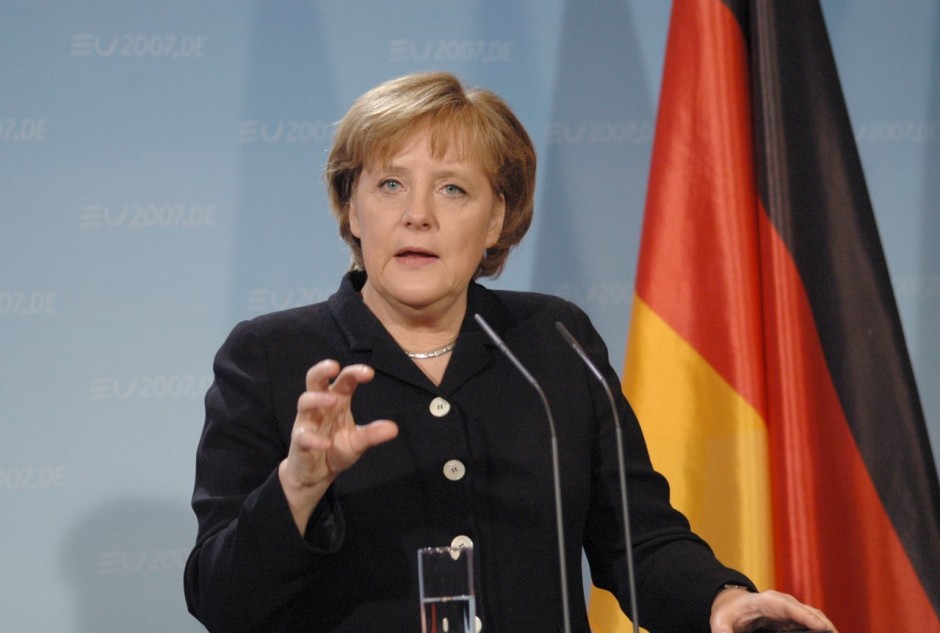German Chancellor Angela Merkel’s two-day visit to Israel this week was intended to demonstrate unwavering friendship with Israel in spite of sharp disagreements over two critical issues — Israeli settlements in the West Bank and Iran’s nuclear program.
Upon her arrival in Israel with 15 members of her cabinet in tow, Merkel, eager to defuse tensions with Israel, suggested that Germany’s special relationship with Israel was intact.
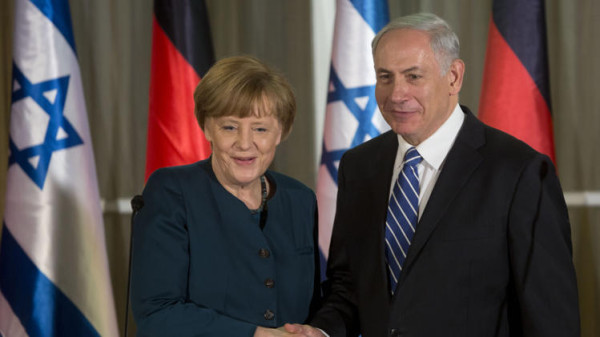
“We have come here with almost the whole of our government, and we wanted to show you in this way that this is indeed a very strong friendship,” she declared, adding that Germany has worked “shoulder to shoulder” with Israel over the decades to secure its future.
And in a tangible gesture of goodwill, Germany offered to provide consular services to Israelis who get into trouble in countries with which Israel has no diplomatic relations.
Much to Israel’s satisfaction, Merkel expressed public support for two key Israeli positions that have emerged during the current U.S.-brokered peace talks with the Palestinian Authority.
Merkel said she was in agreement with Israel’s demand for stringent security arrangements, particularly in the Jordan Valley, and with Israel’s insistence on being recognized as a Jewish state: “We … support a two-state solution — a Palestinian state and a Jewish state of Israel. We also support Israel’s security requirements to be able to finally live in secure borders.”
Israeli Prime Minister Benjamin Netanyahu, Merkel’s host, was also pleased to hear that Germany — Israel’s closest ally in Europe and best friend in the world after the United States — does not back a contentious policy that some of its European allies have already embraced. As Merkel stated, Germany neither supports a boycott nor the labelling of goods manufactured in Israeli settlements in the West Bank, which is claimed both by Israel and the Palestinians.
Merkel, though, reiterated her opposition to Israel’s expansion of settlements in the West Bank — a source of friction between Germany and Israel, on the one hand, and Merkel and Netanyahu, on the other hand.
Alluding to the legitimate fear that Jewish settlements destroy the possibility of a geographically contiguous Palestinian state, she observed, “For a two-state solution, we need territorial integrity. Thus we treat the settlement question with concern, in which we are not always of one opinion.”
Merkel, of course, was being polite. According to an article in the authoritative Der Spiegel news magazine published on the eve of her trip to Israel, she and Netanyahu have engaged in shouting matches on the telephone when they’ve discussed settlements and the current peace process.
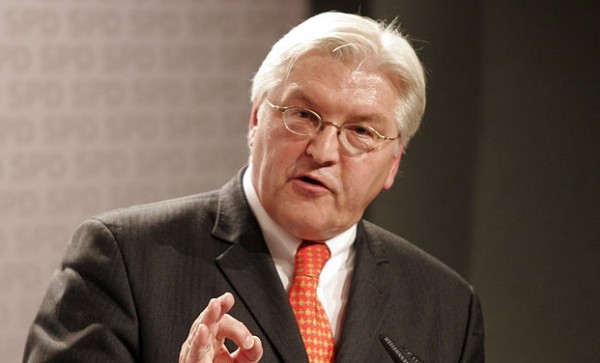
The view in Germany, Der Spiegel reported, is that Netanyahu’s right-wing government is neither capable nor willing to make the kind of meaningful concessions and compromises essential for peace talks to succeed.
German Foreign Minister Frank-Walter Steinmeier believes that the settlements are a serious barrier to peace and one of the biggest sticking points in Israel`s negotiations with the Palestinians.
Prior to Merkel`s visit, Steinmeier voiced criticism of Israel`s settlement policy, calling it “disruptive.” Describing it as one of the “obstacles that prevent a solution,” he said it was more than just “unhelpful.”
More vocal German politicians have used stronger language to decry Israeli policy in the West Bank, which Israel captured from Jordan in the Six Day War.
Two years ago, following a visit to the Arab town of Hebron, the only one in the West Bank populated by Israeli Jews, Sigmar Gabriel, Merkel’s deputy, said that conditions there reminded him of the atmosphere in apartheid South Africa.
Tellingly enough, Gabriel did not accompany Merkel to Israel, claiming that “illness” had forced a last minute cancellation.
More recently, Martin Schulz, the German president of the European Parliament, enraged Israeli right-wingers by saying, accurately enough, that Israel exerts control over the West Bank’s finite water supply.
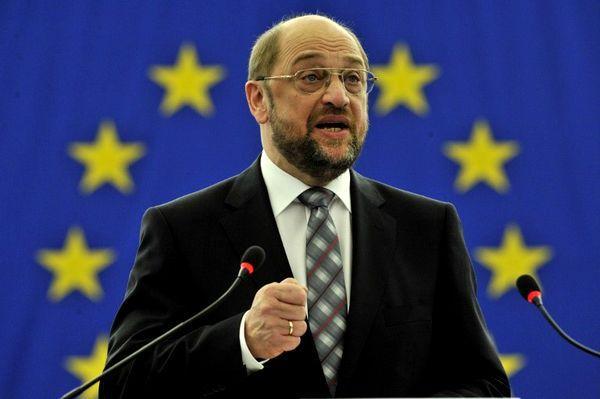
Naftali Bennett, a member of Netanyahu’s coalition and the head of the far-right Home Party, stormed out of the Knesset in self-righteous indignation as Schulz spoke. Demanding an apology from Schulz, he blurted out, “I will not accept untruthful patronizing of the people of Israel in our parliament, certainly not in German.”
The contretemps was symbolic of the growing rift between Germany and Israel on the Palestinian issue, a conflict which came to a head at the United Nations’ General Assembly in December 2012, when the German ambassador abstained on a historic vote on upgrading the status of the Palestinians to non-member observer state.
Days before the vote, Merkel said, “We are not neutral.” But when voting took place, Germany joined 40 other countries in abstaining, greatly disappointing Israel. In the end, the resolution was supported by 138 nations and opposed by nine, including Canada and the United States, underscoring Israel’s isolation internationally.
During Merkel’s trip, Germany and Israel were at loggerheads as well over Iran, which is currently engaged in talks with the major powers — United States, Russia, China, Britain, France and Germany — on reaching a permanent accord over its controversial nuclear program.
Israel is demanding that Iran should not be allowed to attain the ability to enrich uranium, one of the key steps in building an atomic bomb, not even for peaceful purposes like electrical power generation.
But, as Merkel told Netanyahu, Israel’s demand is unrealistic. By all accounts, Merkel reiterated that the major powers will probably permit Iran to enrich uranium up to three percent, a great distance from the 90 percent needed to build a nuclear bomb.
Despite the fact that Germany and Israel do not see eye to eye on two pivotal issues, Germany is unequivocably committed to Israel’s well being.
Germany, which established formal diplomatic relations with Israel 50 years ago next year, has close military and intelligence ties with the Jewish state. Germany has fully paid for or partially funded the construction of four Dolphin-class submarines, which form the backbone of the Israeli navy and which can carry nuclear weapons. Germany is due to deliver a fifth Dolphin in four years, and a contract for a sixth one has already been signed.
Bild, the German tabloid, disclosed late last year that Germany will supply Israel with two guided missile destroyers, each valued at one billion euros.
Last April, Der Spiegel reported that Israel may sell advanced attack drones to Germany.
Germany’s commitment to Israel’s security stems, of course, from its central role in the Holocaust — which claimed the lives of six million European Jews and displaced hundreds of thousands others — and its historic responsibility to the Jewish people.
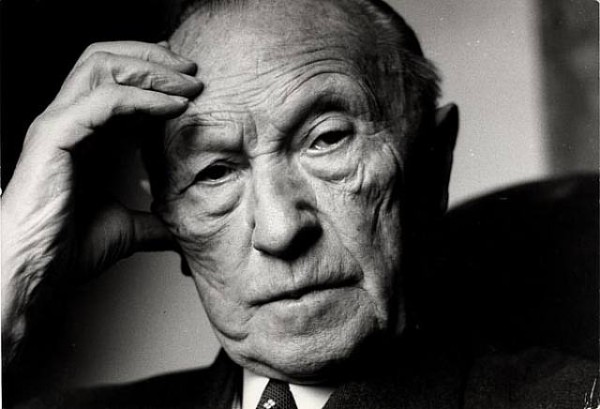
After Nazi Germany’s defeat, the first German postwar leader, Konrad Adenauer, adopted a policy of reconciliation. By way of making amends for its crimes against humanity, Germany (West Germany before reunification in 1990) gave billions of dollars in reparation payments to Holocaust survivors and Israel itself. These payments will not stop until the last Holocaust survivor dies
Germany and Israel established formal diplomatic relations in 1965, and since then, bilateral relations in trade, tourism, youth exchanges and academic and scientific cooperation have flourished.
Of late, however, public opinion in Germany, particularly among the younger generation, has turned against Israel — a trend that has manifested itself all over Europe. The simmering Palestinian issue, which stokes tension between Germany and Israel, is basically at the root of this generational shift in German attitudes to the Jewish state.
